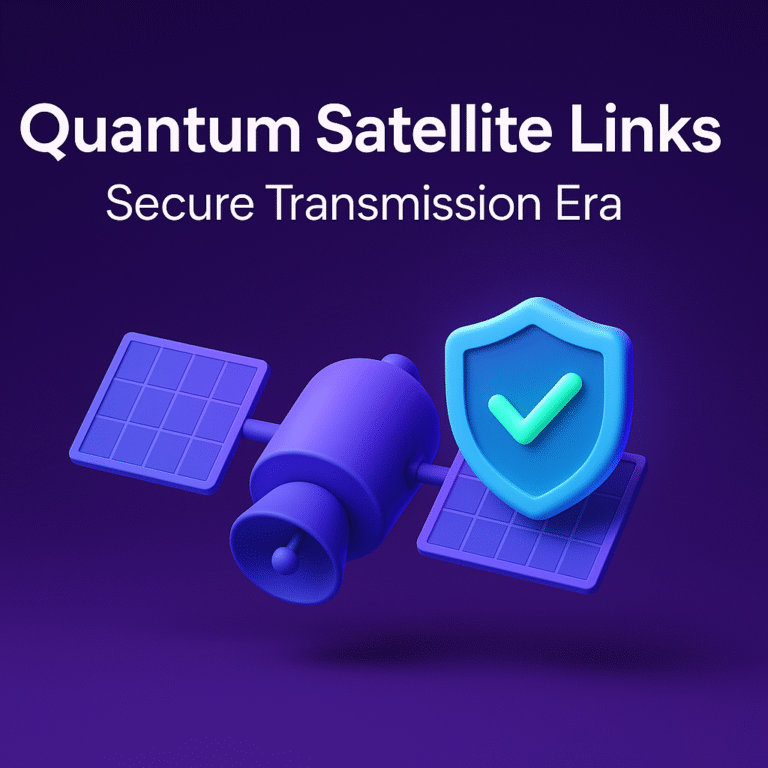Eutelsat Aims for Italian Satellite Contract: Opportunities and Implications
Introduction to Eutelsat and the Italian Satellite Market
Eutelsat Communications is a prominent entity in the global satellite communications landscape, recognized for its extensive portfolio of satellite services that encompass broadband, broadcast, and data connectivity. Founded in 1977 and headquartered in Paris, Eutelsat operates a fleet of satellites that deliver services to customers in over 150 countries. The company’s technological advancements have positioned it as a leader in high-capacity transponders, ensuring strong performance in various applications including satellite TV, internet access, and corporate networks. Recently, Eutelsat has made strides towards integrating satellite and terrestrial networks, thereby enhancing its service delivery and expanding its market reach.
The Italian satellite market presents a fertile ground for the growth of Eutelsat’s operations. Italy has consistently demonstrated increasing demand for satellite services, driven by both urban and rural connectivity needs. In particular, remote and rural areas of the country have shown a significant reliance on satellite technology to complement terrestrial networks. This need has become even more pronounced with the rising demand for high-speed internet connectivity, particularly following shifts in work habits and remote learning spurred by the global pandemic. Major players in the Italian satellite arena include SES, Telespazio, and Inmarsat, each offering unique services catering to different segments of the market.
The regulatory environment in Italy also plays a crucial role in shaping the satellite communications sector. The Italian government, along with the European Union, has been proactive in fostering a regulatory framework that encourages innovation and competition. Policies aimed at ensuring digital inclusion and expanding broadband access across all demographics augment the viability of satellite systems as integral components in Italy’s efforts to bridge the digital divide. Therefore, Eutelsat’s interest in pursuing opportunities within the Italian satellite market is well-grounded, supported by favorable market conditions and a commitment to delivering enhanced satellite services.
Details of the Contract and Strategic Importance
The anticipated Italian satellite contract represents a significant step forward for Eutelsat in enhancing its competitive position within the European market. This contract primarily focuses on deploying advanced communication satellites tailored to meet the specific needs of the Italian telecommunications landscape. The scope of the project includes the construction, launch, and operational deployment of multiple satellites designed to deliver high-speed broadband connectivity throughout Italy. This strategic initiative is poised to address the growing demand for reliable internet access, particularly in underserved and remote regions of the country.
The expected launch dates for these satellites are strategically aligned with Eutelsat’s commitment to achieving operational readiness by the end of 2024. The technology employed in these satellites will incorporate cutting-edge features such as high-throughput capability and enhanced connectivity options, ensuring that Eutelsat can provide unmatched service quality to its customers. Notably, the contract entails collaboration with established aerospace contractors that possess the necessary expertise to ensure the successful development and deployment of these satellites.
From a strategic perspective, this contract is integral to Eutelsat’s broader business strategy as it seeks to solidify its position in Italy’s vibrant telecommunications sector. The company faces stiff competition from both local providers and international players that aim to capture a share of the burgeoning satellite market. As such, forming potential partnerships with regional telecommunications companies may be a crucial facet of Eutelsat’s strategy, allowing the organization to leverage existing infrastructure and customer bases.
This contract not only offers the promise of enhanced service delivery within Italy but also aligns with Eutelsat’s growth plans aimed at expanding its market reach across Europe. By securing this contract, Eutelsat is poised to reinforce its standing as a leader in satellite communications and to contribute positively to Italy’s technological advancements in the coming years.
Impact on Stakeholders and the Italian Economy
The potential contract between Eutelsat and Italian authorities carries significant implications for a variety of stakeholders, including telecommunications companies, consumers, and research institutions. For telecommunications firms, a partnership with Eutelsat may present an opportunity to enhance service quality and expand their offerings, particularly in remote and underserved areas. This collaboration could lead to improved broadband access, which is essential for both residential and commercial consumers who rely on stable internet connections for daily operations and communications.
Moreover, consumers stand to benefit directly from these advancements in satellite technology. Enhanced connectivity, driven by Eutelsat’s deployment of innovative satellite solutions, may lead to better service options, lower costs, and increased competition among telecommunications providers. As a result, Italian consumers could experience a rise in satisfaction due to improved service reliability and performance. Additionally, research institutions may leverage improved connectivity to enhance their capabilities in conducting studies, collaborating internationally, and accessing significant data resources, positioning Italy as a competitive player in the global research landscape.
From an economic perspective, this Eutelsat contract has the potential to stimulate job creation within the satellite and telecommunications sectors. As businesses expand to meet enhanced connectivity demands, new roles in engineering, customer support, and technology development may emerge. The economic ripple effect could extend to ancillary businesses, with more support services and industries emerging to support the expanding telecommunications infrastructure.
Furthermore, Italy may benefit from technological advancements driven by a robust satellite communication framework. As the nation strives to improve its digital landscape, higher connectivity levels can attract foreign investment and stimulate economic growth. While challenges may arise in implementation and coordination, the long-term benefits of this contract could position Italy for a brighter, more connected future.
Future Outlook and Conclusion
The landscape of satellite communications is evolving rapidly, with advancements in technology and an increasing demand for reliable connectivity driving the sector’s growth. Eutelsat’s pursuit of an Italian satellite contract exemplifies its commitment to strategic expansion and adaptation to market needs. As the organization positions itself for potential contracts, it stands to benefit significantly from Italy’s growing emphasis on enhancing digital infrastructure, particularly in underserved areas.
The anticipated contract can serve as a catalyst for Eutelsat to solidify its presence in Italy, showcasing its capabilities in delivering high-quality satellite services. This partnership could unlock additional opportunities within the region, spurring innovation and encouraging further investments in satellite technology. Additionally, Eutelsat’s involvement in Italy is likely to impact broader European dynamics, as nations increasingly turn to satellite systems to meet burgeoning connectivity requirements. The trends suggest a growing interdependence between terrestrial and satellite networks, allowing Eutelsat to play a vital role in future-proofing communication systems across various sectors.
Moreover, key trends such as demand for high-throughput satellites and the increasing importance of low Earth orbit (LEO) constellations present both challenges and opportunities for Eutelsat. The company will need to adapt its strategy to remain competitive, potentially exploring partnerships or technological innovations. As the market landscape matures, real-time data processing, coupled with enhanced network efficiency, will become paramount. Hence, Eutelsat’s focus on leveraging its expertise in satellite technology positions it favorably in an increasingly competitive environment.
In conclusion, the anticipated contract in Italy holds significant implications for Eutelsat’s strategic ambitions. The ability to deliver comprehensive satellite solutions in Italy not only extends their operational footprint but also reinforces their market leadership. As satellite technology continues to evolve, Eutelsat’s proactive efforts in Italy could pave the way for broader advancements in satellite communications that benefit various stakeholders, from governments to enterprises and consumers alike.






